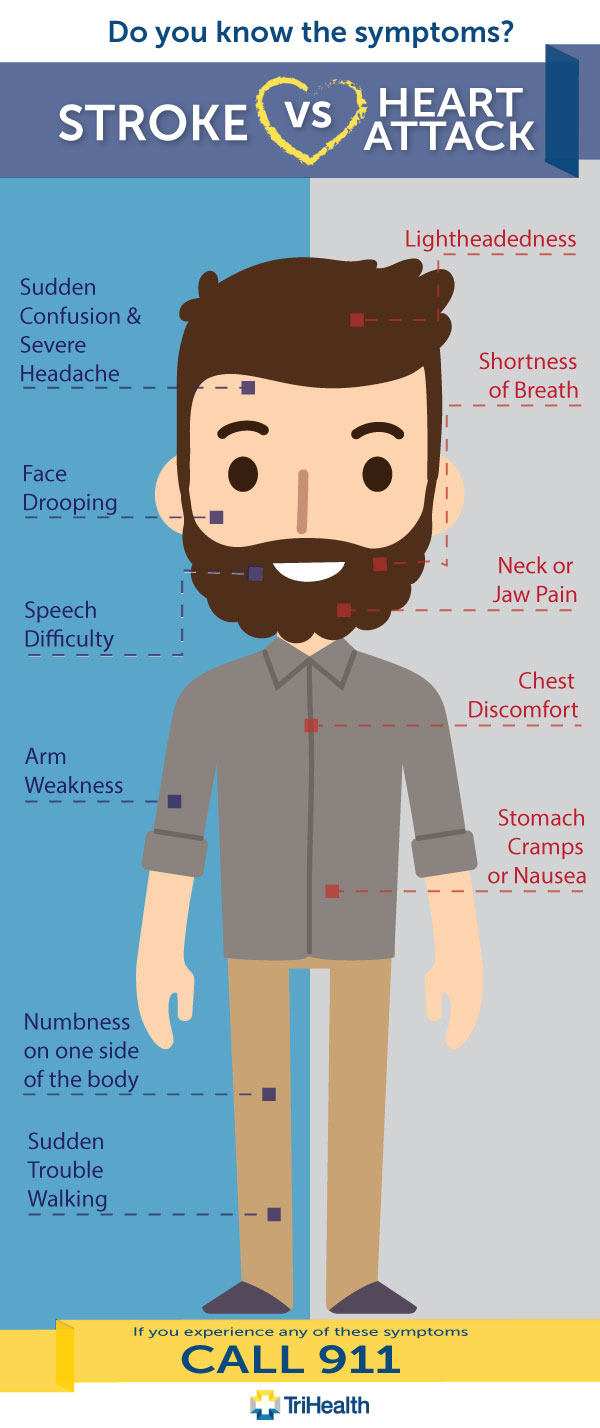Heart Attack & Stroke: Do You Know The Signs?

Knowing the signs and symptoms of heart attack and stroke can save your life or the life of someone you love.
STROKE
Early recognition is the most important factor when it comes to stroke.
Remember to B.E.F.A.S.T.:
- Balance - Watch for sudden loss of balance.
- Eyes Is there a sudden loss of vision in one or both eyes? Or double vision?
- Face Drooping Does one side of the face droop or is it numb? Ask the person to smile.
- Arm Weakness Is one arm weak or numb? Ask the person to raise both arms. Does one arm drift downward?
- Speech Difficulty Is speech slurred, are they unable to speak, or are they hard to understand? Ask the person to repeat a simple sentence, like "the sky is blue." Is the sentence repeated correctly?
- Time to call 9-1-1 If the person shows any of these symptoms, even if the symptoms go away, call 9-1-1 and get them to the hospital immediately.
The most common symptoms of stroke are face drooping, arm weakness and speech difficulty. However, there are other associated symptoms.
- Sudden NUMBNESS or weakness of face, arm, or leg, especially on one side of the body
- Sudden CONFUSION, trouble speaking or understanding speech
- Sudden TROUBLE SEEING in one or both eyes
- Sudden TROUBLE WALKING, dizziness, loss of balance or coordination
- Sudden SEVERE HEADACHE with no known cause
Visit the TriHealth Neuroscience Institute for more information on stroke treatment and care.
HEART ATTACK
Similar to stroke, a heart attack may cause sudden symptoms. But, a heart attack can also be much less obvious - in some cases giving warning signs leading up to a cardiovascular event.
Common Heart Attack Warning Signs Include:
- Chest discomfort. Most heart attacks involve discomfort in the center of the chest that lasts more than a few minutes, or that goes away and comes back. It can feel like uncomfortable pressure, squeezing, fullness or pain.
- Discomfort in other areas of the upper body. Symptoms can include pain or discomfort in one or both arms, the back, neck, jaw or stomach.
- Shortness of breath with or without chest discomfort.
- Other signs may include breaking out in a cold sweat, nausea or lightheadedness.
- In women specifically, there may not be an indication of chest pressure.
If you or someone you know notices intense symptoms, don't take chances: call 911 and seek immediate medical attention. The faster a heart attack is treated, the more likely the outcome will be positive.
Visit the TriHealth Heart Institute for more information on the treatment and prevention of heart disease.
Infographic: Stroke vs. Heart Attack
